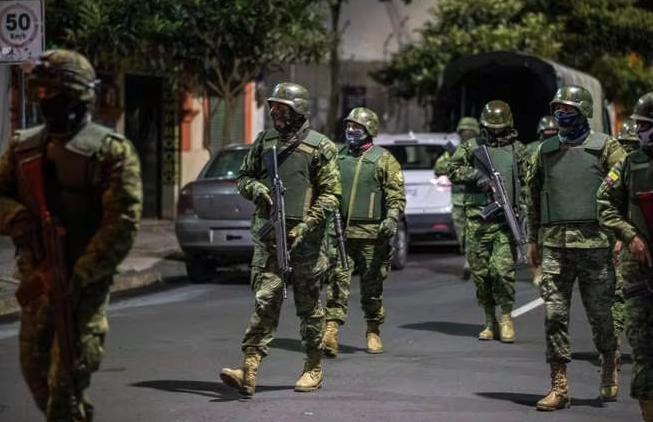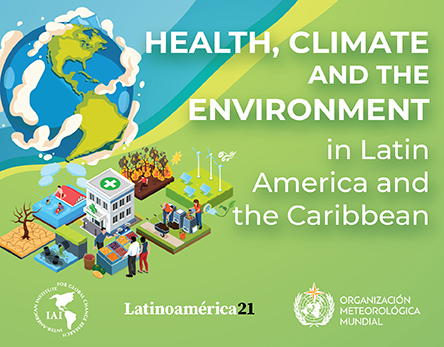A month after Daniel Noboa Azín took office, the latest events of insecurity and violence are testing his ability to manage a huge crisis, in addition to a broken economy. These are two tests for the youngest president in the history of Ecuador, who meteorically reached the presidency after his short stint in the National Assembly. Despite an unfavorable context, Noboa enjoys high popularity and support in this declared war on terrorism.
In less than two days, criminal gangs operating under the sponsorship of cartels and alliances from Colombia and Mexico took control of the prisons, detained prison guards as hostages, the most dangerous man in the country, alias Fito, escaped from prison, and the same happened with the main suspect of attempting to assassinate the Attorney General, Diana Salazar, Captain Pico. Simultaneously, terrorist events took place in several cities, such as the explosion of car bombs and the taking hostage of journalists and administrative personnel for several hours on a public television channel.
This cocktail of terrorist events led the President to decree a state of emergency and immediately declare a maximum security alert in the country: internal armed conflict and declare war on well-identified gangs. This had never happened before in a democracy. The seriousness of the situation motivated all political forces represented in the Assembly to close ranks and pronounce their support to the Government, allowing the police and military to enjoy amnesty and pardon in case of self-defense and defense of the population in the fight against terrorists. The international community has also supported Noboa, with declarations from the governments of the United States, the European Union, and the bordering countries, Colombia and Peru.
Brief outlines of insecurity
Nonetheless, even if the problem of insecurity and violence at current levels is unprecedented in Ecuador, it does not appear suddenly. The strength demonstrated by the terrorist gangs in these two days is evidence of a process of several years in which they managed to set up a national structure and a business model that revolves around drugs. A structure with logistical capacity, recruitment of thousands of young people into their ranks, and a strategy to infiltrate the state efficiently, co-opting key areas of the judicial system, the Assembly, local governments, and law enforcement, as demonstrated by the investigations of the Attorney General, Diana Salazar, in the Metastasis case.
Historically, Ecuador was in the midst of two armed conflicts that shook the social fabric of Colombia and Peru. The border shared with the former was systematically violated by the FARC guerrillas and, in the latter, the Shining Path and its ideological creed became a catechesis for some radical indigenous groups. Despite this, the outbreaks of insecurity did not reach the levels of today. Nevertheless, several signs foretold a catastrophic end. When the Colombian government bombed the FARC camp in Ecuador in 2008, the investigative commission determined that there were guerrilla contributions to Ecuadorian politics. From that moment on, people began to talk about narco-politics.
The response to the Latinobarómetro survey on “Do you often worry that you might become a victim of violent crime?” in Ecuador offers some clues. In 2011, 43% of the population answered “yes”, this figure rose to 49% in 2013, dropped to 30% in 2015, and rose again to 43% in 2023. In other words, the current levels of concern are the same as 12 years ago; however, the types of crime, their frequency, and quantity increased, as did the number of violent deaths per 100,000 inhabitants. Now a figure of 40 is registered, placing Ecuador among the most violent countries in the world.
Between 2018 and 2023, while citizens’ perception of being a victim of violent crime increased, satisfaction with democracy fell and dissatisfaction with economic performance increased. It could be said that the population rates democracy poorly in environments of insecurity, in addition to the fact that these perceptions occur in a context of economic crisis.
The measures adopted by President Daniel Noboa can only be evaluated in the medium and long term, since dismantling terrorist gangs cannot be achieved in a short period. The Government, in addition to achieving internal political support, requires resources, planning, and reliable equipment to combat two phenomena: the infiltration of drug trafficking in the state and the daily blows dealt by common criminals at the service of major and transnational interests. In this sense, the thesis that the fight against a transnational problem requires regional and global support is gaining more strength.
*Translated by Janaína Ruviaro da Silva from the original in Spanish.
Autor
Political scientist and communicator. General research coordinator of the Institute of Higher National Studies - IAEN (Quito). PhD in Social Sciences from FLACSO-Ecuador. Last books (2020): "In the eye of the hurricane. Communication Law in Ecuador".












